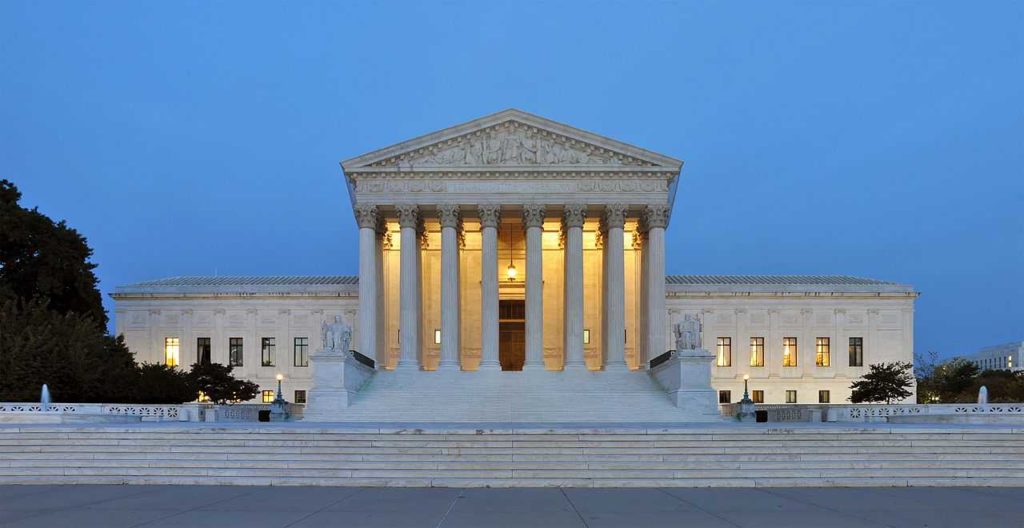US Supreme Court: States Can’t Exclude Religious Schools From Private Education Scholarship Programs

WASHINGTON — The U.S. Supreme Court has ruled 5-4, with Chief Justice John Roberts siding with his conservative colleagues this time, that the State of Montana can’t exclude religious schools from a program that allows scholarships to be awarded to families for the attendance of private schools.
“A state need not subsidize private education. But once a state decides to do so, it cannot disqualify some private schools solely because they are religious,” wrote Roberts on behalf of the majority.
Article X, Section VI of the Montana Constitution states, “The legislature, counties, cities, towns, school districts, and public corporations shall not make any direct or indirect appropriation or payment from any public fund or monies, or any grant of lands or other property for any sectarian purpose or to aid any church, school, academy, seminary, college, university, or other literary or scientific institution, controlled in whole or in part by any church, sect, or denomination.”
Therefore, when the state legislature created a donor-funded, taxpayer credit initiative program in 2015 to provide tuition assistance to families whose children attend private schools, and some families used the funds to send their children to a Christian school, the Montana Department of Revenue instituted Rule 1 to prohibit the money from being utilized for religious schooling in light of the constitutional “no-aid provision.”
The state attorney general objected to the rule as he believed the exclusion violated the federal constitution.
Three mothers whose children attend Stillwater Christian School soon sued, and the case, Espinoza v. Montana Department of Revenue, went all the way to the nation’s highest court after a trial court blocked the rule but the state Supreme Court reinstated it.
On Tuesday, the court found that the “no-aid” provision “burdens not only religious schools but also the families whose children attend or hope to attend them.”
“Drawing on ‘enduring American tradition,’ we have long recognized the rights of parents to direct ‘the religious upbringing’ of their children. Many parents exercise that right by sending their children to religious schools, a choice protected by the Constitution,” Roberts noted.
“But the no-aid provision penalizes that decision by cutting families off from otherwise available benefits if they choose a religious private school rather than a secular one, and for no other reason.”
“Given the conflict between the Free Exercise Clause and the application of the no-aid provision here, the Montana Supreme Court should have ‘disregard[ed]’ the no-aid provision and decided this case ‘conformably to the [C]onstitution’ of the United States,” the majority concluded.
“That ‘supreme law of the land’ condemns discrimination against religious schools and the families whose children attend them. They are ‘member[s] of the community too,’ and their exclusion from the scholarship program here is ‘odious to our Constitution’ and ‘cannot stand.’”
In addition to Roberts, the majority opinion was comprised of Clarence Thomas, Samuel Alito, Neil Gorsuch and Brett Kavanaugh. Stephen Breyer, Ruth Bader Ginsburg, Sonia Sotomayor and Elena Kagan dissented.
“I wanted my kids to have a really strong sense of right and wrong from a biblical perspective,” lead plaintiff Kendra Espinoza remarked, according to NPR. “I want them to understand that our sense of ethics and our morals come from God’s word, not just man’s ideas.”
The American Civil Liberties Union (ACLU) blasted the opinion as “the latest in a disturbing line of Supreme Court cases attacking the very foundations of the separation of church and state.” But the religious liberties organization Alliance Defending Freedom (ADF) remarked that the court was “right to rule that states can’t oust parents and children from neutral benefit programs simply because they choose a religious private school.”
As previously reported, former Democratic presidential candidate Elizabeth Warren tweeted earlier this year that she opposed funding for private school attendance — especially educational institutions that disagree with homosexual behavior.
“States should focus on funding public schools, not private ones — especially not ones that maintain anti-LGBTQ+ policies,” she wrote. “We must ensure every kid — especially LGBTQ+ kids — can get a high-quality public education.”
Become a Christian News Network Supporter…







Comments are closed.